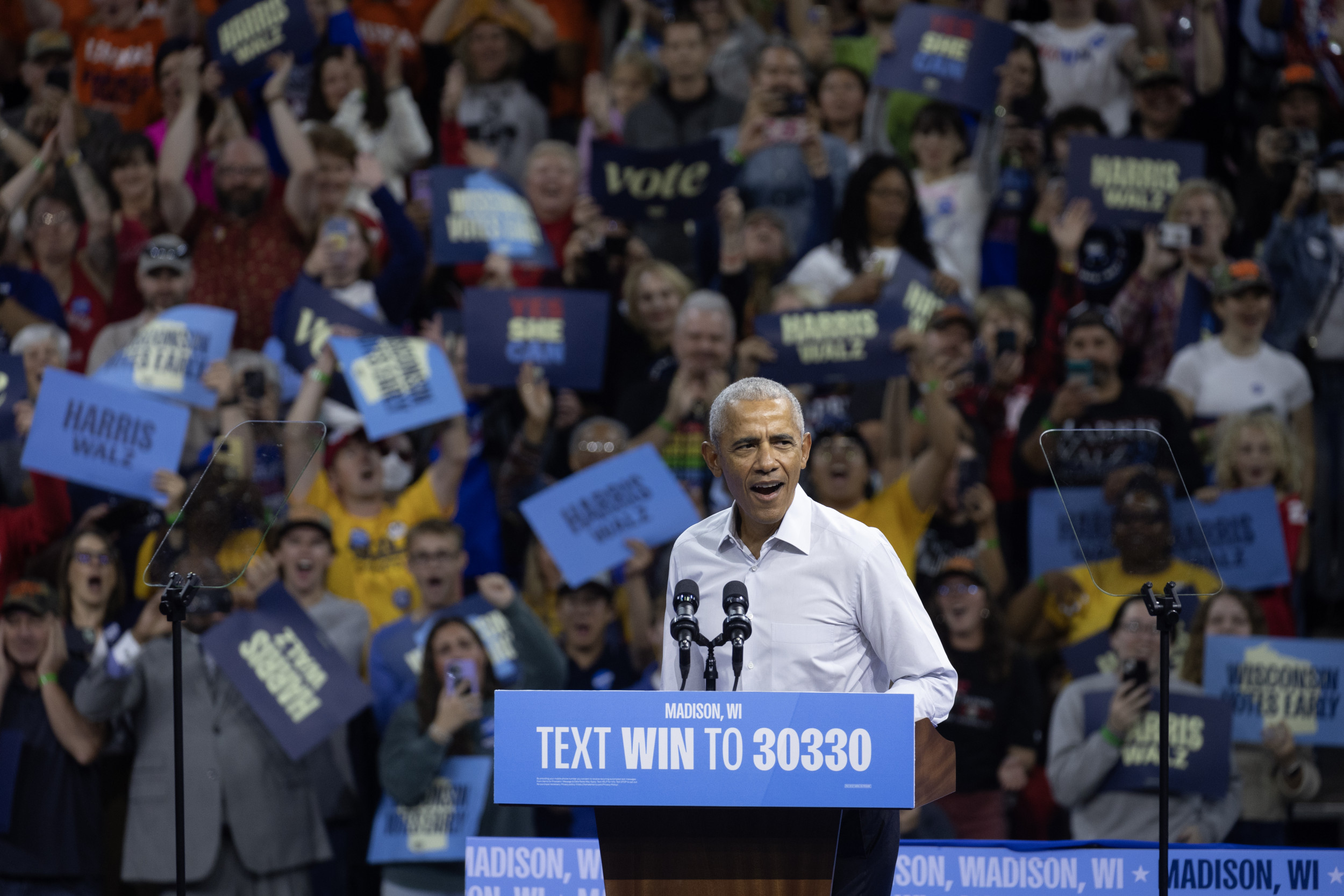At a recent rally for the Harris-Walz campaign in Detroit, former President Barack Obama had some fun referencing Eminem’s famous track “Lose Yourself.” He joked about feeling nervous following the rapper’s performance, saying, “my palms are sweaty, knees weak, arms are heavy.” He had expected Eminem to hit the stage again, commenting, “I was ready to jump out.”
Eminem, known for his clever lyrics, took a more serious tone, stating, “Going into this election, the spotlight is on us more than ever.” The Detroit native introduced Obama, who has long expressed his admiration for Eminem, reminiscing about listening to “Lose Yourself” during the 2008 campaign.
The rapper is vocal about his contempt for former President Donald Trump, famously quipping that a “f****** turd would have been a better president.” Some of his 2017 lyrics even drew attention from the U.S. Secret Service due to their perceived threats.
Obama also subtly compared music choices, suggesting that the Harris campaign’s selection might be more appealing, even stating, “I’d have ‘Lose Yourself’ on there.” Harris’s campaign features a variety of well-known musical guests like Megan Thee Stallion, Usher, and Lizzo, and has garnered endorsements from stars including Taylor Swift and Cardi B.

According to media studies professor Kajikawa, Harris’ use of music, such as Beyoncé’s “Freedom,” helps shift her image from a top cop to someone aligning with marginalized communities. Using popular artists connects her with younger generations, particularly millennials and Gen Z.
On the other hand, Trump’s musical tastes veer into a diverse mix, from country to opera, which he uses to energize his rallies. His support comes from various artists including Jason Aldean and Kid Rock, but many musicians have also issued cease-and-desist orders to distance themselves from him.
Eminem presents a source of irony, as Kajikawa points out. While he might oppose Trump, many of his fans, particularly those who relate to the character in “8 Mile,” are likely to be Trump supporters. “The current political landscape flips the script, making ‘the left’ feel more like ‘the man,’ despite hip-hop’s anti-establishment roots,” Kajikawa adds.
